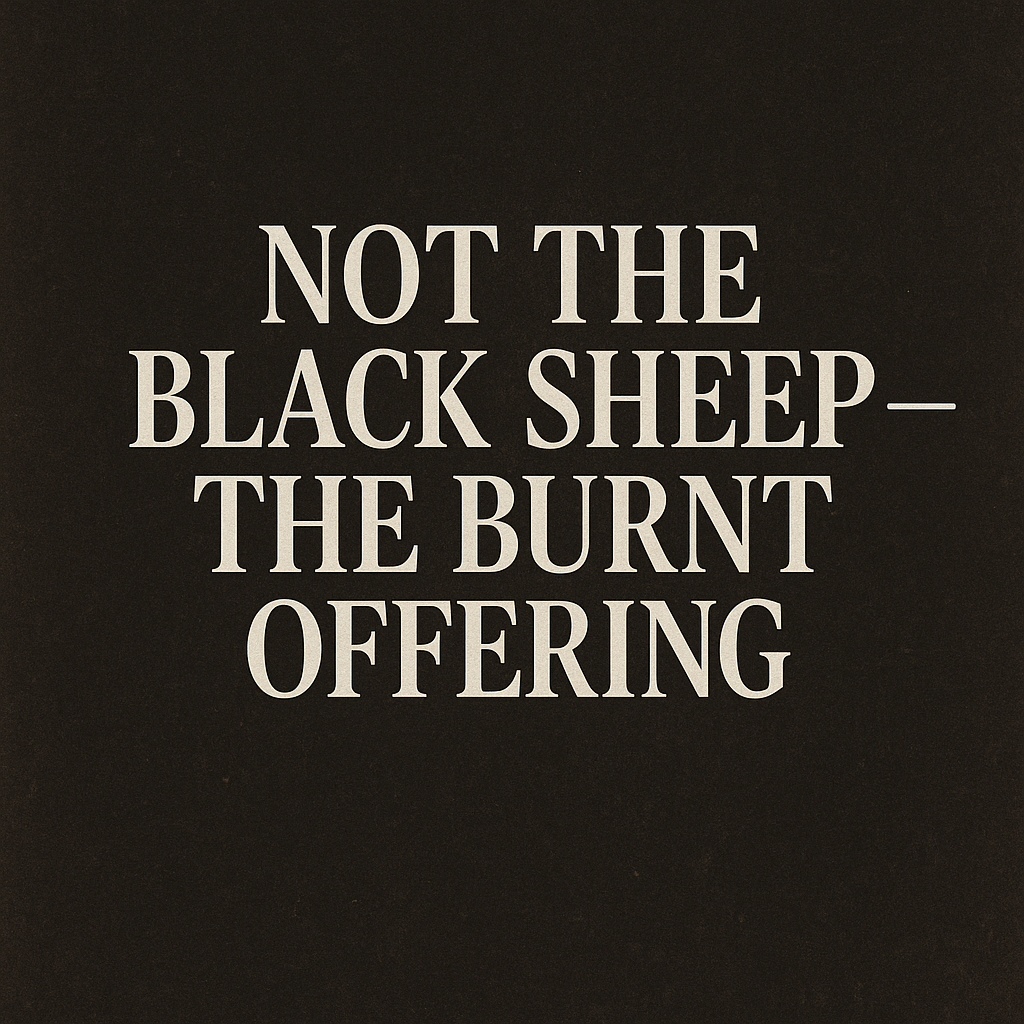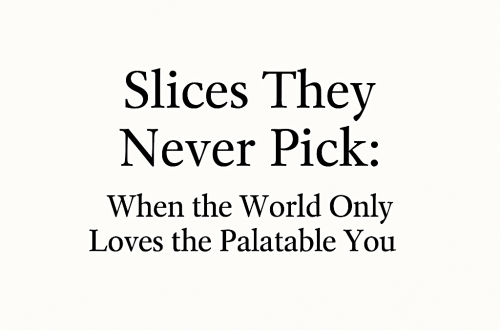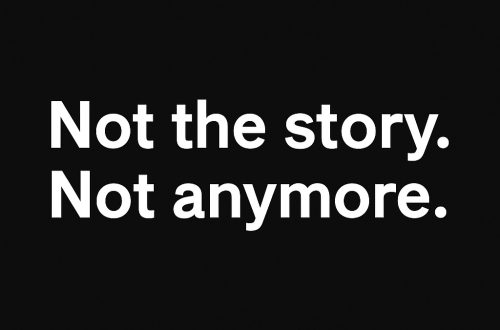
Unseen: The Story of the Favourite Child
Preface
There are stories that live inside the body long after they’ve left the room. This one—a personal story of childhood sexual abuse and parental denial—has sat in my spine, my breath, my bloodstream. Unspoken. Ungrieved. Unresolved.
For years, I wrote around it.
For others. For brands. For screens.
But this piece? This is the one I wrote for the child who waited. Who swallowed silence. Who outlived the house and its shadows.
This is not a cry for attention. It is a reclaiming.
Not a story I’ve wanted to tell—just one I’ve had to. A reckoning I’ve postponed, rewritten, and buried under functioning smiles and bank transfers.
Because the body remembers.
The child remembers.
Even at 42.
This isn’t a letter of revenge. It’s not even a letter for healing.
It’s a document—for every daughter who was told she was “too much” for feeling, and “not enough” to be protected.
This is what it means to grow up unseen.
The One Who Always Had to Know Better
I wasn’t the rebel or the runaway. I was the one who had to pull up her socks — even when she preferred ankle-length. I was sent out alone to post offices, banks, telephone exchanges, and markets long before I should’ve been navigating catcalls. They called it being “street smart.”
I was the middle child. The one who didn’t get screamed at in markets but had to pretend she had it all together. I wasn’t allowed the fragility of emotion. Not at five, not at fifteen, not even now.
I had to be the one who knew. Who solved. Who gave. Who suppressed.
Even when I was the one being pulled into corners. Into toilets. Into bathrooms.
Even when the sexual abuse happened in the presence of that large, protective house. For almost ten years.
No one noticed — or pretended not to.
And yet, I was expected to rise. To earn. To hand over my salary at 20. To send them to weddings and plane rides — when they had the means of the world and more. To always understand that “they were going through a lot.”
The Child Who Grew Up Parenting
She — my mother — was making tea for the abuser. I remember the whistle of the kettle. The way she tapped the spoon against the cup to stir in the sugar. The steam rising from the glass tumbler — its warmth never meant for me.
He stood there like he belonged.
And she stood there, pouring out care for him like it was second nature.
While all I had ever asked — my only ask — was for her to ask him to leave.
When I finally said it out loud — decades later — she gave me silence. No embrace, relief, shame.
She didn’t cry for me or ask what it took from me to say it. Nor did she see the tears I had spent years learning to swallow, or hold the child in me that had waited so long to be seen.
She gave him tea, and gave me none of the warmth. She buried it under the same pretense she buried everything else.
Even when I walked in on him again — the abuser — when I was 35, inside that same house, that same room.
I had to threaten them — my family — that I would tell my “powerful” father. Only then did they flinch.
But they didn’t act.
They didn’t choose me.
They never did.
That moment folded itself into my personal story of childhood sexual abuse and parental denial, another layer of silence I learned to live with.
When Care Became a Curse Word
They say I’m the favourite child. Because I paid the bills. Because I sent the maids, shopped for their groceries.
I became the husband they didn’t have, the parent they refused to be.
The one who pulled my father out of bed after his disasters; who bore his beatings and then begged him to eat; who he yelled at for being silent and punished when she finally spoke.
I paid for it all — emotionally, physically, financially.
But I wasn’t allowed to feel anything in return.
Care became performance. Survival became service. And I became someone they leaned on — but never looked into.
The Body That Remembered Everything
They don’t talk about the trauma of being ignored.
How your body starts to doubt itself. How it swallows pain like daily vitamins.
How you learn to smile when called resilient — not realising they mean,
“Thank you for surviving what we refused to see.”
I sat on bakery floors and roadside pavements, refusing to budge unless I got that extra bar of chocolate or cola. I got them. And yet, all I wanted was protection. I wanted not to be pulled behind doors.
I wanted them to ask what was wrong.
No one did.
And even at 4, and 7, and 11 — and at 40, and 42 — my body remembers.
It remembers the weight of the hands. The shape of rooms I learned to fear.
The curve of my spine, trained not to flinch.
It remembers how to freeze.
How to stay quiet.
How to keep the family intact at the cost of a child.
The Ask That Was Too Much
And when I finally did ask my father —
My only ask. Ever.
Six years after the incident, and three decades after the abuse had stopped but been thoroughly ignored, I asked him to confront the man.
The man who did it — inside his room.
The man he never noticed. Or chose not to.
The same father who beat me as a child for dropping food on the floor. Who made me eat from where the dog had peed. Who had all the power, all the money, all the words — just not the will to protect me.
He didn’t say “I’m sorry.”
He called me a thief.
Because speaking my truth sounded, to him, like stealing his pride.
Then he mocked me. To my sister. The one time I said it aloud, he laughed behind my back.
Papa,
All I ever wanted from you was to show up. To protect the child you were supposed to love.
To use that voice you saved for the world, just once — for me.
Not the daughter who gave you savings and solace, but the girl who waited at 8, and 18, and 40 —
For her father to say, “I believe you. I’m sorry.”
I didn’t ask for much. Just for the man who was always 100 feet away from danger, to be that for me — once.
Just once.
To take one step toward being the father I deserved.
Not the man who buried truth for the sake of family name and fragile male ego.
But I asked too much.
Even silence would have hurt less than what he gave me.
The Resilience They Loved, The Girl They Didn’t
They say I’m their lifeline.
They call me the anchor, the steady one, the one who “understands.”
But they never called me hurt.
They never called me survivor.
They never called me child.
They loved the resilience — not the girl it came from.
And I? I pray my end comes before his. Because his passing won’t just be a loss — it’ll be the collapse of the only reality I’ve ever known: silence in the face of pain.
The daughter who wasn’t allowed to emote. Who had to cut her heart into pieces and fold it into bags of foil — neatly tucked between their needs and her absence.
All I ever wanted was someone to say,
“That happened to you. And it wasn’t your fault.”
That acknowledgment never came.
And it became part of my personal story of childhood sexual abuse and parental denial — quietly shaping every part of who I am.
They gave me grief in exchange for truth.
And called it love.
And called me the favourite.





